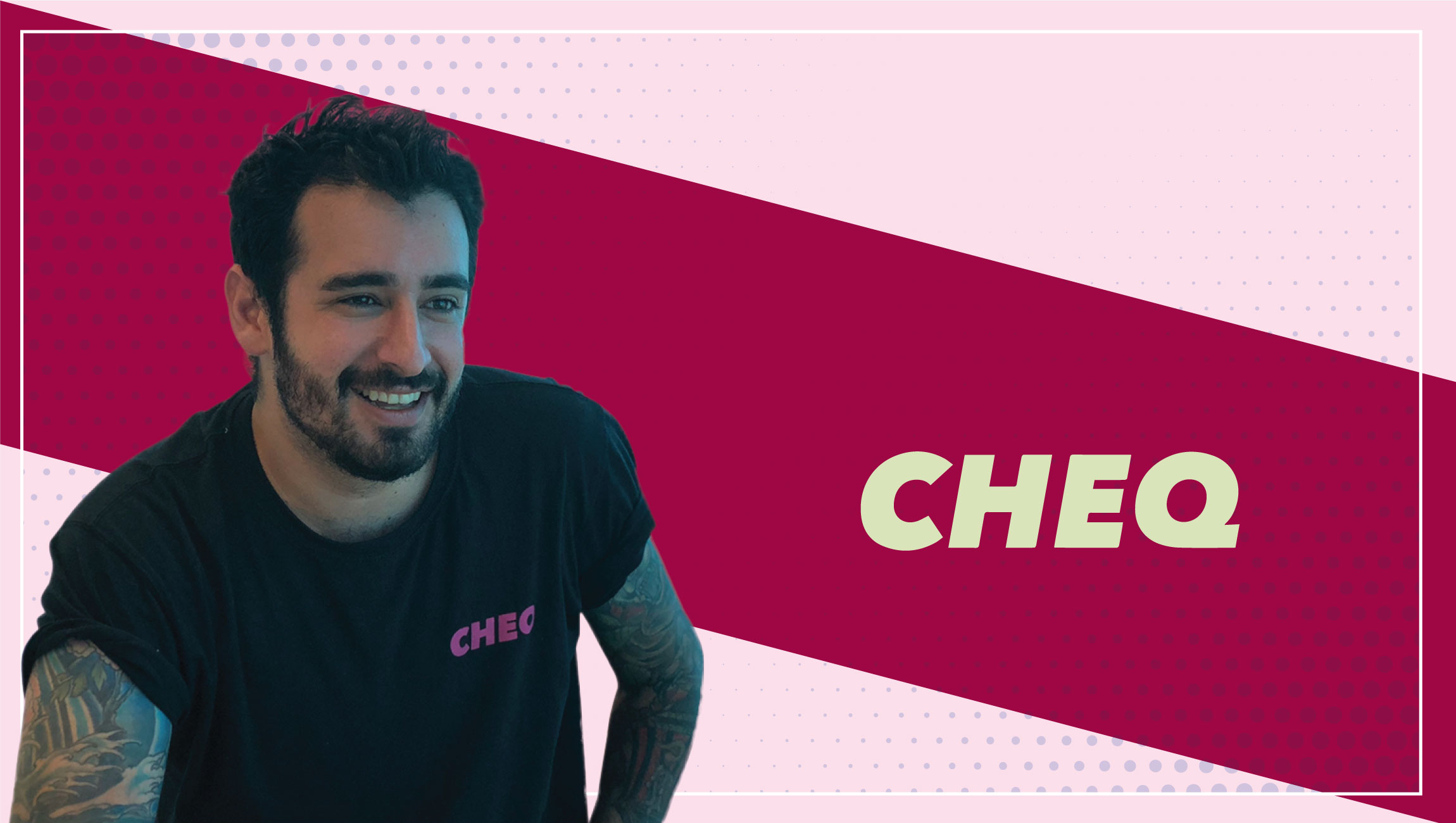Could you tell us about your journey in technology and how you started at CHEQ?
I started my journey in tech back in 2003 when I joined the research wing of the Israeli defense intelligence. I was admitted to a unique program known as “Haman Talpiot,” which is tasked with breeding the next generation of intelligence leadership. I served there for the better part of a decade. After I concluded my career in military intelligence, I went on to found my first company – Adzouk, a digital media company that went on to be acquired.
During my time at Adzouk, I came across the incumbent ad-verification solutions that were attempting to solve the huge issues of brand safety and ad fraud plaguing the digital media landscape. I felt the solutions available at the time weren’t utilizing the kind of sophisticated tech required to solve such complex challenges, which prompted me to start CHEQ. The idea was to restore trust in Digital Advertising by launching the first cyber/NLP driven ad verification solution and finally start fixing these issues with the appropriate tools.
What are the emerging perils of doing business in the bot economy?
Today, around 45% of internet users are bots. Not all of them are malicious and yet they are causing great harm to advertisers, retailers and other kinds of online business. For example, advertisers lose up to $30B every year to fake bot traffic, as we’ve uncovered in our recent global ad fraud report. In e-commerce, we see over $200B at risk of bot related fraud and $10B worth of direct losses as a result of transaction fraud, affiliate fraud, fake reviews, and many other sophisticated schemes. Businesses exposed to fake bot traffic also run the risk of data leaks, server crashes driven by DDoS attacks and other perils.
How does CHEQ help businesses against these bot attacks?
CHEQ is quickly becoming a must-have tool in every digital advertiser/online retailer’s toolkit. Our platform is deployed all across the digital media ecosystem, from publisher sites to DSPs and SSPs, e-commerce sites and many other media platforms. We see trillions of ad transactions monthly (and rapidly growing), allowing us to protect businesses anywhere they operate. This includes real-time bot mitigation across Display and Video Advertising, Connected TV, Console gaming, Mobile web, in-app environments and more. Our mission has always been to protect online players holistically, across all their channels.
How are Web bot attacks different from the ones that attack mobile users?
Though both bot and mobile attacks are designed to drain advertising budgets, and make money, mobile attacks are different. The app economy, in particular, provides fraudsters with a number of ways to trick potential victims, from fake installs to attribution manipulation and SDK spoofing. Mobile fraudsters also utilize the fact that your phone is always on and constantly tracking your location.
Almost every industry is heavily disrupted by Big Data, AI, Blockchain, and Predictive Intelligence technologies. What kind of future are you building to safeguard against Bot and Cyber crimes with your AI and ML expertise?
We’re building an ecosystem that replaces dated keyword and IP block lists with accurate and preemptive real-time analysis, driven by AI. For brand safety purposes – this is enabled by the deployment of our advanced neural networks to rapidly analyze content and enforce brand guidelines contextually in under 30ms, across over 200 proprietary semantic categories. For ad fraud prevention purposes – this includes our ML models which analyze over 1,000 parameters in real-time to determine the authenticity of users, while utilizing the most advanced cybersecurity practices, from OS/Device/Browser Fingerprinting to dynamic honeypots (bot traps).
What kind of cybersecurity technology would benefit the Ad Commerce space the most? Do you foresee bot attack prevention tools delivered to mobile apps in the near future?
Ad-driven e-commerce should be adopting cybersecurity technologies like behavioral analysis and bot-fingerprinting, coupled with different integrations with SSPs and DSPs than the prebid integrations currently available, to allow third-party vendors to look directly at a request. This would ensure greater transparency, savings of ad budget, and deeper and cooler technology to be used against the problem. Bot prevention tools are already being delivered to mobile apps fairly successfully, for instance, cleaning out and filtering fake installs and stopping install hijacking and fake attribution.
What is your opinion on “Weaponization of AI and Machine Learning”? How do you promote your ideas in the modern Digital economy?
The Weaponization of AI is already happening and should definitely be a concern. We see the start of unmanned vessels and drones (LAW – Lethal Autonomous Weapons) which could, in the near future, operate autonomously and would be required to make life or death decisions. We’re also witnessing seemingly benign AI, like facial recognition, utilized to fight terrorism – itself a worthy cause, and yet the implications of living in a world with total surveillance and powerful algorithms is unsettling. AI weaponization is also a concern in our realm of cybersecurity, as sophisticated hackers continue to master Machine Learning and Deep Learning to scale their operations while causing more damage and improving their stealth.
In terms of the impact on the digital economy? Cybersecurity will become an integral part of every digital system – we already see this in transport systems, where AI is developed to secure mass-transport from potential cyber-attacks. We see this in industry, where power plants and other types of factories are arming themselves to the teeth with cyber-defense systems and even in the digital media and advertising ecosystem, where we (CHEQ) are protecting advertisers from malicious bot attacks and ad-fraud.
Now, with all that being said, I’m not buying into all the doomsday scenarios many people are talking about. The reason I’m cautiously optimistic is that, throughout human history, every new technology has been met with fear and concerns. But, one thing people forget – is that new technology doesn’t just appear one day on our doorstep, sparking a host of unimaginable problems. Rather, what we see is technology being developed over time and gradually implemented throughout society, one step at a time, a process that allows us to uncover risks on-the-go, implement safeguards, and adapt.
Tag the one person in the industry whose answers to these questions you would love to read:
Thank you, Guy! That was fun and hope to see you back on MarTech Series soon.
Guy Tytunovich is the founder and CEO of CHEQ, a global AI-driven cybersecurity company disrupting the ad verification space. Guy began his career as an Israeli military intelligence leader before founding companies in the field of digital media and becoming a leading expert in the field. In 2016, he founded CHEQ, which is the first cyber/NLP-driven ad verification solution.

CHEQ is introducing Autonomous Brand Safety – The most powerful, fully automated tool to protect the world’s leading advertisers from negative content association and digital ad fraud. We utilize military-grade NLP and machine learning to prevent brands, in real-time, from serving ads to brand-damaging content and fake bot traffic.
The MTS Martech Interview Series is a fun Q&A style chat which we really enjoy doing with martech leaders. With inspiration from Lifehacker’s How I work interviews, the MarTech Series Interviews follows a two part format On Marketing Technology, and This Is How I Work. The format was chosen because when we decided to start an interview series with the biggest and brightest minds in martech – we wanted to get insight into two areas … one – their ideas on marketing tech and two – insights into the philosophy and methods that make these leaders tick.











